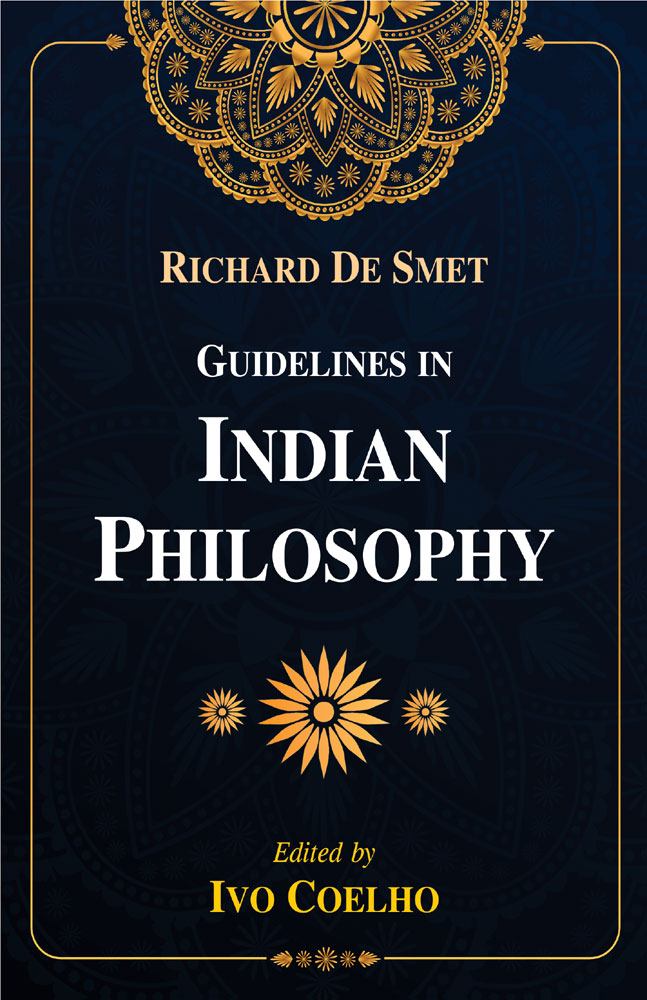Guidelines in Indian Philosophy
![]() 100% Genuine New Books
100% Genuine New Books
![]() Fast Shipping with Tracking Number
Fast Shipping with Tracking Number
Secure Payments via UPI, Cards & Wallets
![]() Trusted Support & Easy Returns
Trusted Support & Easy Returns
Guidelines in Indian Philosophy - Paperback is backordered and will ship as soon as it is back in stock.
ISBN : 9789393214409, 9393214409, 9789393214416, 9393214417
Year of Publication : 2022
Edition : 1st
No. of Pages : 582
Language : English
Condition : New
Publisher: Motilal Banarsidass Publishing House
Free shipping on orders over Rs. 249
Free shipping on orders over Rs. 249
We offer free shipping on orders above Rs. 249 in India. For orders below this threshold, a nominal shipping fee may apply, which will be clearly indicated during the checkout process.
How long will it take to receive my order?
How long will it take to receive my order?
The delivery time varies depending on your location. Generally, orders are processed and shipped within 1-3 business days. Once shipped, you can track and expect your order to arrive within 3-7 business days (the duration may vary depending on your location). For more information, please refer to our shipping policy.
Chat with a Real Person
Chat with a Real Person
WhatsApp chat is dedicated to assisting with after-sales queries regarding delivery, returns, and payments. Click below to initiate chat with us on WhatsApp:
[Bookstaa WhatsApp Chat].
For all other inquiries, please visit our customer support page or email us at support@bookstaa.com.
Couldn't load pickup availability
Description
Description
About the Book:
Richard De Smet’s Guidelines in Indian Philosophy originated as notes for students composed over the years 1954-1975. They are a rather sophisticated introduction to Indian philosophy taken in a broad sense as including all efforts of Indian thinkers to unravel the mystery of existence. Beginning with the birth of philosophical reflection in the Vedas, Brahmanas, Aranyakasand Upanisads, they go on to deal with the various darsans, nastika and astika, as also with the Bhagavad Gita and the evolution of Isvaravada, before coming to a rather abrupt end with Sankara’s Advaita Vedanta, itself sadly incomplete. De Smet, however, was convinced that Indian thought revealed a progressive development, a kind of finality even, and he considered Sankara one of the great peaks of that development. The chapter on the great acarya’s Advaitavada is therefore a fitting end for the book. With the publication of the Guidelines, all of De Smet’s major studies on Sankara are now easily accessible, with the exception of his doctoral dissertation.
About the Authors:
Richard De Smet taught Indian Philosophy at Jnana Deepa Vidyapeeth, Pune. Born in Belgium in 1916, he joined the Jesuits in 1934 and came to India in 1946. He earned a PhD in 1953 from the Gregorian University, Rome for his thesis on the theological method of Sankara, proposing both that Sankara was a Srutivadin, and that he used the method of laksana / analogy in his interpretation of the Upanisadic mahavakyas. De Smet was a life member of the Indian Philosophical Congress and the Indian Philosophical Association, and Founder-President of the Association of Christian Philosophers of India, and in these capacities carried out an ongoing dialogue with Indian philosophers and religious personalities. He died in 1997.
Ivo Coelho is Reader in Gnoseology and Metaphysics at Divyadaan: Salesian Institute of Philosophy, Nashik. Born in 1958 at Mumbai, he studied under De Smet at Pune, and later specialized in the hermeneutical thought of the Canadian philosopher, theologian and economist Bernard Lonergan. He is the author of Hermeneutics and Method: The ‘Universal Viewpoint’ in Bernard Lonergan (Toronto, 2001), and editor of Brahman and Person: Essays by Richard De Smet (Delhi, 2010) and Understanding Sankara: Essays by Richard De Smet (Delhi, 2013).
About the Publisher

Motilal Banarsidass Publishing House (MLBD)
Motilal Banarsidass Publishing House, popularly known as MLBD, is one of the oldest and most prestigious publishing houses in India, established in 1903.
With over a century of legacy, MLBD has been at the forefront of publishing scholarly works in the fields of Indology, Sanskrit, philosophy, religion, spirituality, yoga, Buddhism, and Jainism.
Renowned for its authenticity and academic rigour, MLBD's books are trusted by researchers, scholars, and readers across the globe.
With more than 5,000 titles in circulation, MLBD continues to uphold its commitment to preserving and promoting India’s rich cultural and philosophical heritage.
Bookstaa is an authorized distributor of MLBD books, ensuring 100% genuine and original publications for our readers.

